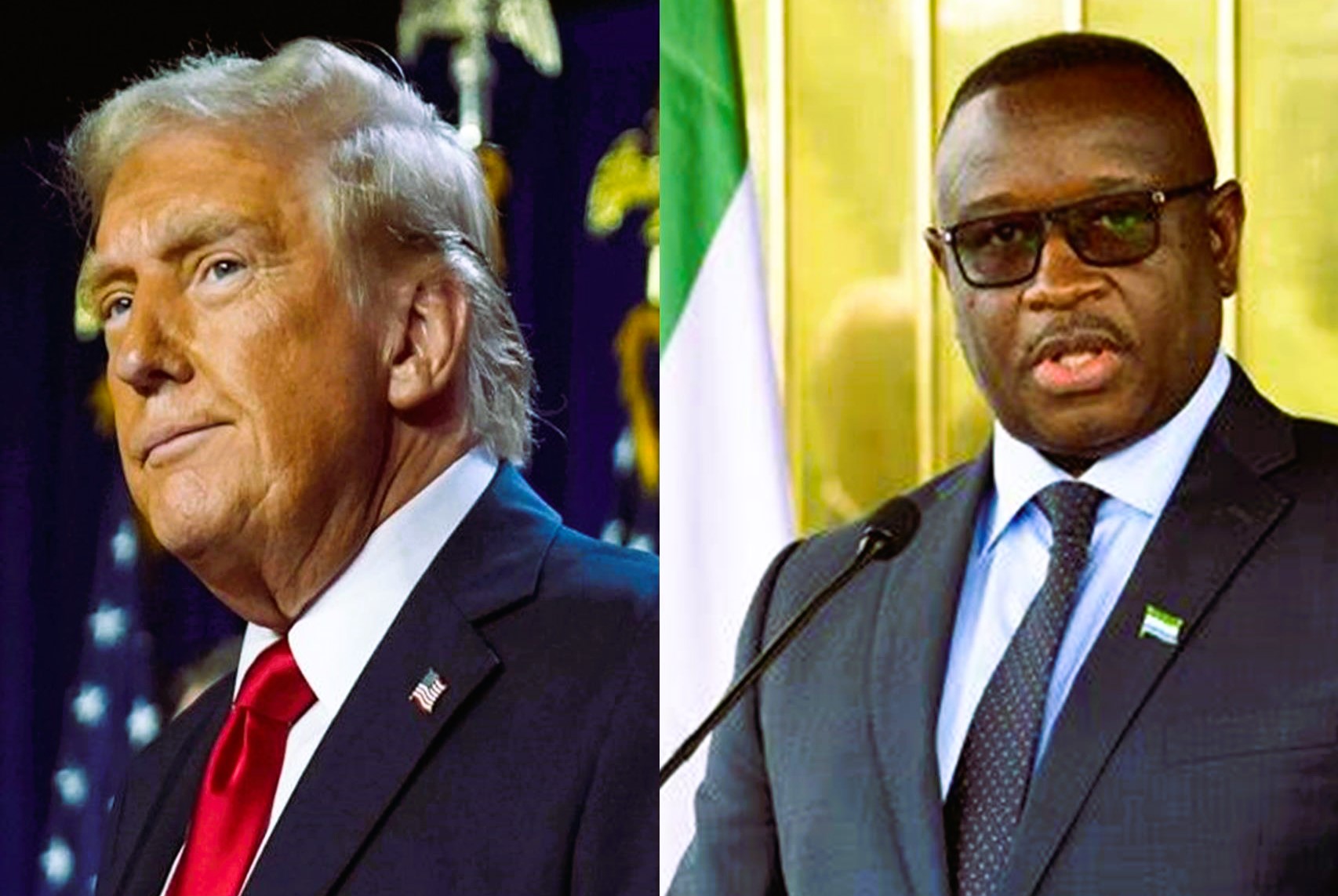By Donald Theo-Harding
A Donald Trump presidency holds uncertain prospects for Sierra Leone. While many Sierra Leoneans had hoped for a Kamala Harris victory, which could have led to more inclusive immigration policies and stronger international partnerships, Trump’s approach signals a potential continuation of policies that may limit Sierra Leone’s economic growth, governance improvements, and social welfare advancements. The reduction in U.S. support in critical areas like trade, military, and healthcare could create additional challenges for Sierra Leone’s leaders and citizens. The country may need to rely more heavily on other international partners or bolster internal resilience to compensate for any gaps left by U.S. policy shifts under Trump. The global stage is shifting, and a Trump win underscores the importance for Sierra Leone to diversify its international alliances and continue its own path toward sustainable development and governance.
Many Sierra Leoneans hoped that a Kamala Harris presidency would bring more favorable immigration policies. Harris, as the first woman of African and Asian descent to reach such heights in U.S. politics, represented a new chapter for immigrants and people of colour. Her administration was expected to ease some of the restrictive immigration policies from Trump’s previous term. For Sierra Leoneans, this would have meant greater access to education, employment, and a pathway to citizenship, providing invaluable opportunities for economic and personal growth.
A Trump presidency, however, could mean a return to stricter immigration policies, including visa restrictions that make it more difficult for Sierra Leoneans to migrate. During his first term, Trump imposed travel restrictions on several African nations, leading to visa denials and reduced access to U.S. educational and work opportunities. For those hoping to migrate, Trump’s policies may once again limit their chances of achieving the “American Dream,” placing further constraints on Sierra Leoneans looking to study, work, or join family members in the U.S.
In terms of governance, Trump’s policies have emphasized reduced foreign aid and a hands-off approach in dealing with governance issues abroad. This stance has often meant less U.S. support for democratic institutions and civil society groups in countries like Sierra Leone. Such groups are essential for promoting transparency, reducing corruption, and upholding the rule of law. U.S. support, both financially and diplomatically, has played a role in strengthening Sierra Leone’s post-conflict democratic institutions, and reduced involvement could weaken these gains.
Furthermore, Sierra Leone’s development programs could be affected by potential cuts in U.S. funding under Trump. Trump’s previous administration focused on reducing foreign aid, often redirecting funds away from developing nations to prioritize U.S.-based initiatives. Without adequate support from powerful allies like the U.S., Sierra Leone may struggle to fund essential programs in healthcare, education, and infrastructure, potentially undermining the country’s long-term development goals and stability.
Military support is another area where a Trump administration could have a profound impact on Sierra Leone. Historically, the U.S. has provided security assistance to African countries to counter terrorism, support peacekeeping efforts, and improve regional stability. For Sierra Leone, which has previously experienced civil conflict, the continued presence of international military support is crucial in preventing instability and maintaining peace.
Trump’s prior stance, however, involved pulling back U.S. involvement in foreign conflicts and reducing military aid to various regions, including Africa. With Trump back in office, there could be a decrease in U.S. military cooperation and security funding for Sierra Leone. This reduction may hinder Sierra Leone’s ability to tackle internal security challenges and maintain peace, potentially opening a gap for other international actors, like China and Russia, to increase their influence in the region. While these countries may offer support, their motivations differ from those of the U.S., which has traditionally focused on building stability and supporting governance reforms.
In addition to governance and economic impacts, a Trump presidency could have social implications for Sierra Leone, particularly concerning public health. The U.S. has been a significant contributor to health initiatives across Africa, funding programs that address issues like malaria, HIV/AIDS, and maternal health. These programs have saved lives and strengthened healthcare systems in many African countries, including Sierra Leone, which has struggled with outbreaks like Ebola.
A Trump administration’s history of reducing foreign aid may mean fewer funds for these health initiatives. In Sierra Leone, this could translate to limited resources for fighting diseases, training healthcare workers, and improving maternal and child health. The effects would be felt by vulnerable populations most in need of medical services, and in the long term, it may lead to setbacks in the country’s healthcare progress.

